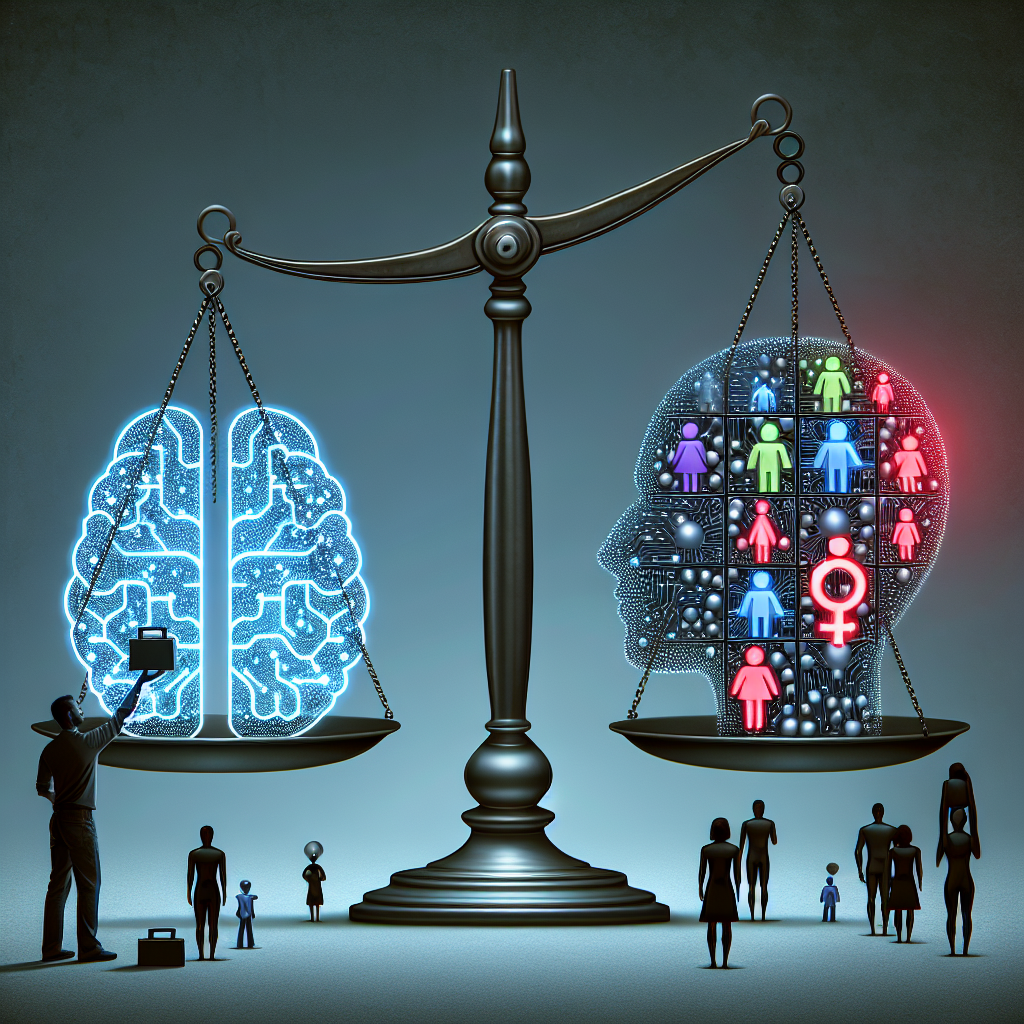Artificial intelligence (AI) has become an increasingly prevalent tool in decision-making processes across various industries, from healthcare to finance to criminal justice. While AI has the potential to streamline processes, increase efficiency, and improve outcomes, it also raises important ethical questions regarding bias and fairness.
The Ethical Implications of AI in Decision Making
One of the key ethical concerns surrounding AI in decision making is the issue of bias. AI algorithms are only as good as the data they are trained on, and if that data is biased, the AI system will produce biased results. For example, if a facial recognition algorithm is trained primarily on data from white individuals, it may have difficulty accurately identifying people of color. This can have serious consequences, such as misidentifying individuals in law enforcement settings or perpetuating stereotypes in hiring practices.
Another ethical concern is the lack of transparency in AI decision-making processes. Many AI algorithms are complex and opaque, making it difficult for individuals to understand how decisions are being made. This lack of transparency raises questions about accountability and the ability to challenge decisions that may be unfair or discriminatory.
Additionally, there is the issue of fairness in AI decision making. AI systems are often designed to optimize for a specific outcome, such as maximizing profits or minimizing errors. However, what is considered fair or just is often subjective and context-dependent. For example, an AI algorithm used in the criminal justice system to predict recidivism rates may prioritize reducing crime rates over ensuring that individuals are treated fairly and justly. This raises questions about who gets to define what is fair and how to balance competing values in AI decision making.
Addressing Bias and Fairness in AI Decision Making
There are several strategies that can be employed to address bias and fairness in AI decision making. One approach is to ensure that the data used to train AI algorithms is representative and diverse. This may involve collecting data from a wide range of sources and conducting regular audits to identify and correct bias in the data. Additionally, researchers can employ techniques such as data augmentation and adversarial training to mitigate bias in AI systems.
Another strategy is to increase transparency in AI decision making. This can involve providing explanations for how decisions are made, allowing individuals to challenge decisions, and ensuring that decision-making processes are subject to oversight and review. Researchers can also develop tools to detect and mitigate bias in AI algorithms, such as fairness-aware machine learning techniques and bias audits.
Furthermore, it is important to engage with stakeholders, including affected communities, policymakers, and ethicists, in discussions about the ethical implications of AI in decision making. By involving a diverse range of voices in the design and implementation of AI systems, researchers can better anticipate and address ethical concerns before they become manifest.
FAQs
Q: How can bias be addressed in AI decision making?
A: Bias in AI decision making can be addressed by ensuring that the data used to train algorithms is representative and diverse, increasing transparency in decision-making processes, and engaging with stakeholders in ethical discussions.
Q: What are some examples of bias in AI decision making?
A: Examples of bias in AI decision making include facial recognition algorithms that struggle to accurately identify people of color and criminal justice algorithms that disproportionately target marginalized communities.
Q: How can fairness be ensured in AI decision making?
A: Fairness in AI decision making can be ensured by balancing competing values, engaging with stakeholders in ethical discussions, and employing tools to detect and mitigate bias in AI algorithms.
In conclusion, the ethical implications of AI in decision making are complex and multifaceted. By addressing bias and fairness in AI systems, researchers can help to ensure that AI technologies are used in a responsible and ethical manner. By engaging with stakeholders and prioritizing transparency, researchers can build AI systems that are more equitable, just, and fair for all individuals.

